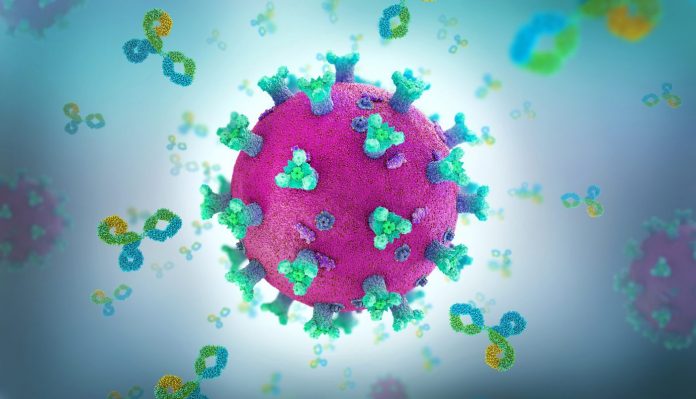
Patients show substantial cognitive decline 12–18 months after hospitalization for COVID-19, a new year-long study of over 350 patients finds. The rate of decline, the researchers report, is comparable to 20 years of aging. Further, MRI scans and blood tests showed these patients had brain injury markers and reduced brain volume. Notably, follow-up in 106 patients demonstrated “a trend toward recovery.” Which raises the question of exactly how long this lasts.
The effects were seen even in those without neurological complications. Their findings, the researchers say, “Provide the clearest evidence to date that COVID can have significant impacts on brain and mind health long after recovery from respiratory problems.”
These findings, they report, also support the hypothesis that brain injury in moderate to severe COVID-19 may be immune-mediated, and that recognition should guide the development of therapeutic strategies.
The study is from researchers led by the University of Liverpool, King’s College London, and the University of Cambridge as part of the COVID-CNS Consortium. It appeared in Nature Medicine this week, and the lead author is Greta K. Wood,University of Liverpool.
The researchers note, “It is important to emphasize that these were patients who had experienced COVID, requiring hospitalization, and these results shouldn’t be too widely generalized to all people with lived experience of COVID.”
Wood said, “After hospitalization with COVID-19 many people report ongoing cognitive symptoms often termed ‘brain fog.’”
“However, it has been unclear as to whether there is objective evidence of cognitive impairment and, if so, is there any biological evidence of brain injury; and most importantly if patients recover over time.
“In this latest research, we studied 351 COVID-19 patients who required hospitalization with and without new neurological complications. We found that both those with and without acute neurological complications of COVID-19 had worse cognition than would be expected for their age, sex and level of education, based on 3,000 control subjects.”
Corresponding author Benedict Michael, professor of neuroscience at the University of Liverpool, PhD, added, “COVID-19 is not a condition simply of the lung. Often those patients who are most severely affected are the ones who have brain complications.”
“These findings indicate that hospitalization with COVID-19 can lead to global, objectively measurable cognitive deficits that can be identified even 12–18 months after hospitalization.”
“These persistent cognitive deficits were present in those hospitalized both with and without clinical neurological complications, indicating that COVID-19 alone can cause cognitive impairment without a neurological diagnosis having been made.
“The association with brain cell injury biomarkers in blood and reduced volume of brain regions on MRI indicates that there may be measurable biological mechanisms underpinning this.”
This team reports on the one-year cognitive, serum biomarker, and neuroimaging findings from a prospective, national study of cognition in 351 COVID-19 patients who had required hospitalization, as compared to 2,927 normative matched controls. Cognitive deficits were global and associated with elevated brain injury markers, and reduced anterior cingulate cortex volume by one year after COVID-19.
The greatest deficits were seen in patients with the most severe initial infective insult, post-acute psychiatric symptoms, and a history of encephalopathy. Follow-up in 106 patients demonstrated a trend toward recovery. Together, these findings support the hypothesis that brain injury in moderate to severe COVID-19 may be immune-mediated, and should guide the development of therapeutic strategies.





